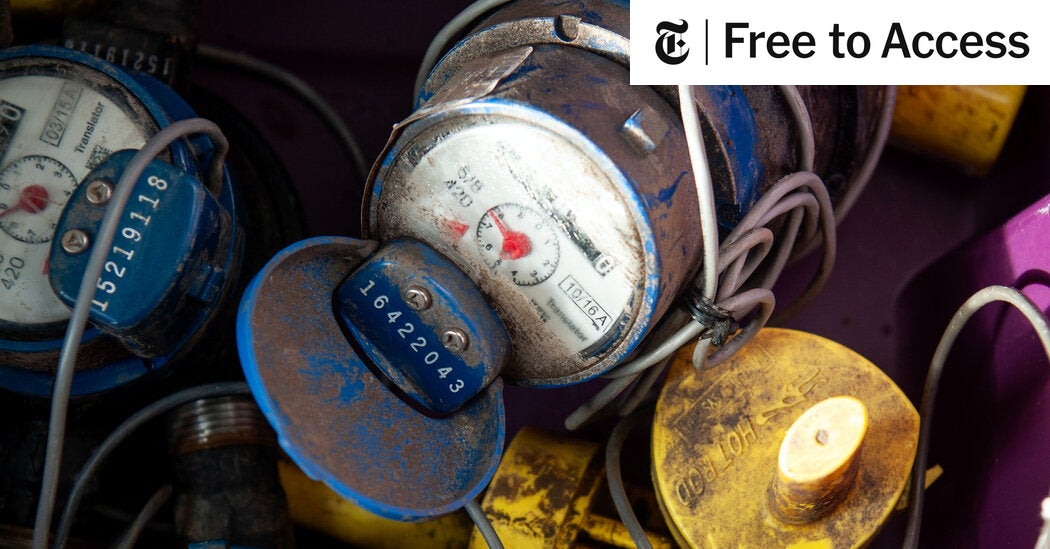- cross-posted to:
- [email protected]
- [email protected]
- cross-posted to:
- [email protected]
- [email protected]
They vowed to fix water woes and save cities millions. But a Times investigation found the deals racked up debt and left many worse off than before.
In winter 2021, more than 150,000 people living in Jackson, Miss., were left without running water.
Faucets were dry or dribbling a muddy brown. For weeks, people across the city lost the water they normally relied on to drink, cook and bathe. With no way to flush their toilets, some parents sent their children into the woods to relieve themselves. Businesses closed. Mississippi’s capital effectively shut down.
The following year, at the height of Mississippi’s sweltering summer in August 2022, it would all happen again.
Each time Jackson faced a water crisis, local and state leaders cast blame in familiar directions. Lawmakers criticized city officials for ignoring leaky pipes and failing to collect payments from customers. City officials pointed to Jackson’s shrinking population and decades of economic decline. And they said state officials, mostly white and Republican, had starved the mostly Black, Democratic city of resources.
But the final blow was delivered by Siemens, a giant German corporation that had swept into town in 2010, boldly promising to install modern water meters that would boost revenues and return Jackson’s water system to a moneymaking enterprise that could afford to fix its crumbling infrastructure.
Siemens, better known for building power plants and high-speed trains, failed to deliver on its promises. Jackson found itself with many meters that didn’t work and wildly inaccurate water bills it couldn’t collect.
Siemens returned the $90 million it had been paid for the project. But the damage was done. Jackson was out more than $450 million in fees and lost revenue. It had no way to repair failing equipment and aging pipes that left city water unsafe to drink and ultimately led to a federal takeover of the water system in December 2022.



That has to be this self regulating market… /s